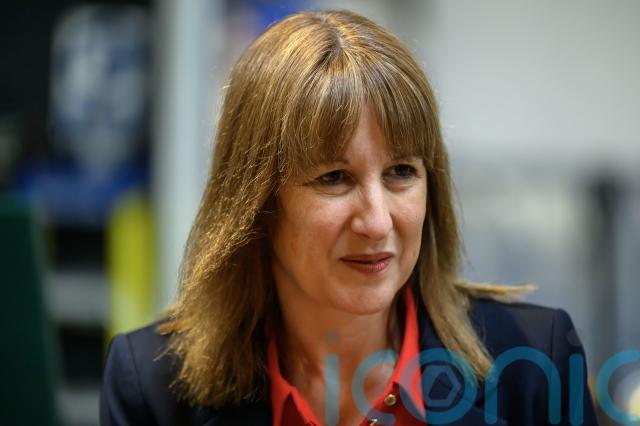
UK inflation is set to surge to the highest in the G7 in 2025 and 2026, according to the International Monetary Fund (IMF).
In its latest outlook report, the influential economic body said price inflation in the UK would increase more sharply than expected in both years compared with previous predictions from July.
It came as the IMF increased its UK growth forecast for this year but reduced its prediction for 2026 amid concerns over the labour market.
In the world economic outlook, which comes as leading politicians and central bank bosses gather in Washington DC, the body highlighted that inflation is picking up in the UK and US.

Most recent figures from the Office for National Statistics (ONS) showed that UK consumer price index (CPI) inflation struck 3.8% in July and August, marking the highest levels since January 2024.
The uptick has been particularly linked to accelerating food and hospitality prices, with many firms and industry groups claiming this has been partly driven by increased labour and tax costs.
On Tuesday, the IMF said it expects UK inflation to average at 3.4% in 2025, increasing from its previous prediction of 3.2%.
The forecasts also showed that UK inflation is expected to slow slightly to 2.5% next year, but this is nonetheless above the 2.3% prediction from earlier this year.
It means UK households are therefore expected to face the highest rate of price inflation across all the G7 group of advanced economies over the two years.
It also highlights a challenge for the Bank of England as it seeks to bring inflation back to the 2% target rate.
IMF chief economist Pierre-Olivier Gourinchas said that many of the drivers of UK inflation were “temporary factors” such as water bills and rail price hikes.
“So we expect this will moderate going forward but there are risks,” he said, including from higher labour costs, and households and firms becoming less certain that inflation will come down.
“The path forward for the Bank of England should be very cautious in its easing trajectory and make sure that inflation is on the right track,” he added – meaning policymakers should not cut interest rates too quickly.
Meanwhile, the UK economy is expected to grow by 1.3% this year, after being boosted by strong growth in the first half.
It represents an improvement against the previous IMF forecast of 1.2%.
However, the IMF has now cut its growth prediction for next year from 1.4% to 1.3% as global trade pressures threaten to impact on many economies.
Canada and France also saw their growth projections reduced amid pressure from tariff headwinds, while the US saw its forecast rise slightly.
Global growth for this year has also been upgraded from 3% to 3.2% in the report, with many economies proving to be more resilient than expected in the face of tariff pressures.
The IMF said growth early in the year surpassed expectations as spending was brought forward, while many economies have also benefited from smaller increases in US tariffs than originally announced.
“Households and businesses front-loaded their consumption and investment in anticipation of higher tariffs,” the report said.
“This gave a temporary boost to global activity in early 2025.”
Elsewhere in the IMF’s outlook, Mr Gourinchas warned that one of the risks to the global economy was a tech boom that has been driving growth in the US.
“There are echoes in the current tech investment surge of the dot-com boom of the late 1990s – it was the internet then, it is AI (artificial intelligence) now,” he said.
“Whether this will be followed by a market correction, I don’t think anyone can tell for sure, but it is certainly one of the risks.”
Chancellor Rachel Reeves said: “This is the second consecutive upgrade to this year’s growth forecast from the IMF.
“But know this is just the start. For too many people, our economy feels stuck.
“Working people feel it every day, experts talk about it, and I am going to deal with it.”
Shadow chancellor Sir Mel Stride said the IMF assessment made for “grim reading”, adding: “Since taking office, Labour have allowed the cost of living to rise, debt to balloon, and business confidence to collapse to record lows. Taxes are rising to record highs and families are being squeezed from all sides.
“Working people are feeling the impact every time they shop, fill up the car, or pay their mortgage.
“Labour should be getting spending under control to bring down borrowing and avoid damaging tax rises, but Starmer and Reeves are simply too weak to do it.”
Subscribe or register today to discover more from DonegalLive.ie
Buy the e-paper of the Donegal Democrat, Donegal People's Press, Donegal Post and Inish Times here for instant access to Donegal's premier news titles.
Keep up with the latest news from Donegal with our daily newsletter featuring the most important stories of the day delivered to your inbox every evening at 5pm.